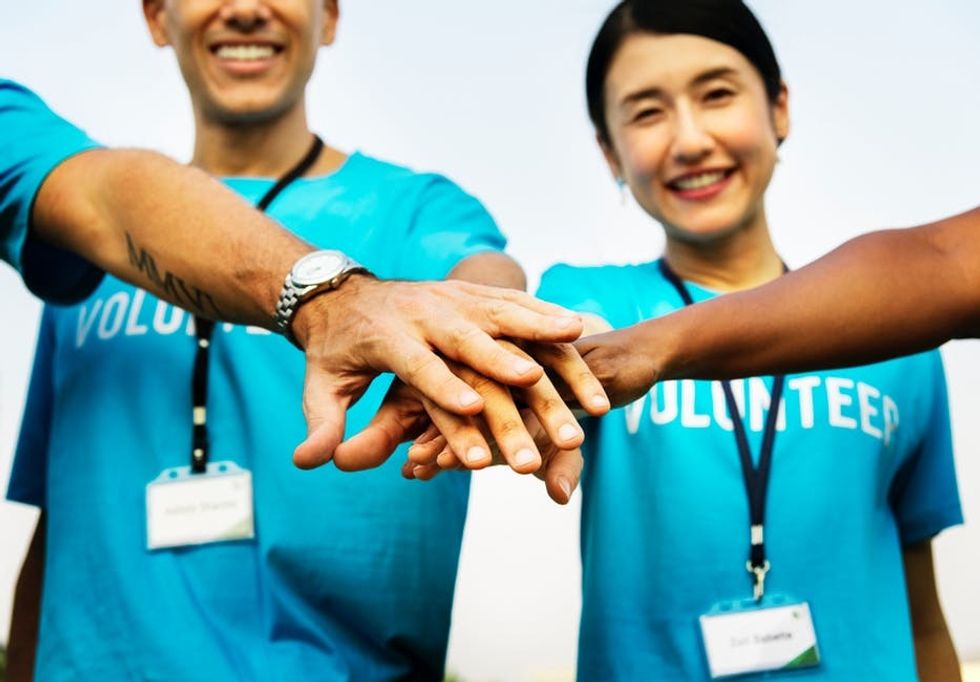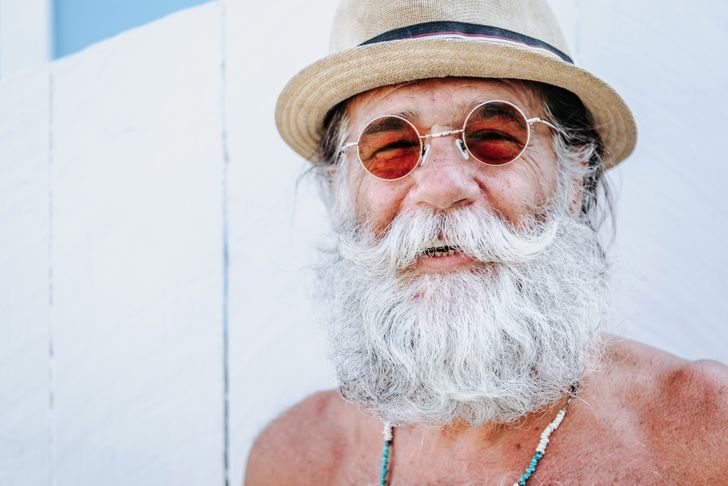"Beware of practicing your righteousness before other people in order to be seen by them, for then you will have no reward from your Father who is in heaven. Thus, when you give to the needy, sound no trumpet before you, as the hypocrites do in the synagogues and in the streets, that they may be praised by others. Truly, I say to you, they have received their reward. But when you give to the needy, do not let your left hand know what your right hand is doing, so that your giving may be in secret. And your Father who sees in secret will reward you." - Matthew 6:1-4 (ESV)
It is from these verses in the Bible, most likely, that the saying I once heard from a mentor came: "after you do something good, disappear and never mention it again." It is a way of giving kindness but not giving way to pride, of walking humbly with God.
Before I was a Christian, as early as two years ago, I did not heed by these words. Giving to a homeless person was an act of grace that I needed to profess to show how good of a person I was, as was talking most of the night with a friend about their problems. And I will admit that I'm not all the way there yet, that sometimes I still profess my good deeds in a public setting, like my Instagram stories, and I'm not the best at maintaining that humility.
The fact is that if you're doing good things for social validation, you're doing it for the wrong reasons. And it's not sustainable, because you're always requiring something in return.
Requiring something in return, in essence, defies the whole point of giving, charity, or grace. To be transparent, every human being expects something in return for doing a good deed. But that can't come externally or it defeats the whole purpose of doing a good deed. It has to come from within or from above. I don't believe I do anything alone, but by a God who strengthens me, and that means the resources, energy, skills, or time I give away to a needy person or community is by the grace of God, not myself.
I was inspired to write this article by a fellow writer on Medium, Katrina Loos, who shared a grain of wisdom that "every good thing you do doesn't need to be seen or shared. You should be a good person on your own because you want to be, not to get people to like you more." The most genuine people also tend to be the most humble, the ones whose best traits and acts aren't the ones said on a job interview.
This isn't a traditional article that denies extrinsic motivation and touts inherently intrinsic motivation for good works and deeds. As a Christian, I don't believe (or I shouldn't believe) in being justified by works, but rather by faith. I'm of a faith where a certain man, the son of God, died on a cross and already finished the work. And it is useful for society to give accolades and incentivize good deeds like volunteering, sacrifice, and giving, but the whole reward cannot be the incentive.
Sure, I know a lot of people that believe that everyone acts in self-interest. Reciprocal altruism is a term in evolutionary biology that predicts that we sacrifice and give to receive benefit for a later time. Vampire bats, for example, share their food and receive food back in return at a later time. And the fact remains that even when we give and sacrifice, the critics that say we're acting in self-interest aren't wrong. Some of us are trying to prove to ourselves that we're good people, while others are acting on religious beliefs, and many others are just not thinking that much about it and acting arbitrarily because it doesn't hurt to do so. I have done good deeds for all these reasons.
But what those critics fail to acknowledge is that if altruism is in our self-interest, then at least society, culture, and religious institutions and laws have done something right. We expect rewards. The issue comes when we expect our reciprocal rewards to come materially, whether in praise on social media or friends, or another favor. In many circles that's how the world works, particularly in cutthroat business-centered circles.
In Matthew 6, Jesus urged us to give in secret. And the merit in this is that we give because we want to give, not because we expect something materially in return, but because "your Father who sees in secret will reward you." There is a lot of temptation in the material reward for good deeds and altruistic behavior. It would be folly to not acknowledge that temptation. I don't expect Marlon, the last homeless person I gave money to on the intersection of Pratt and President Street to repay me the next time I see him.
However, what Jesus tells us is that there is far greater reward in spirit so that we may be rewarded by God. We lose that spiritual reward once we start to brag about our good deeds or altruism, because it starts to be about us, not the person we gave to. It cheapens the act or gift the moment we make it about ourselves. It also cheapens the intimacy when a good deed is made public to the whole world, not just ourselves and the recipients.
There is the old Arab Proverb that "a good deed dies when it is spoken about." Colossians 3:17 tells us that "whatever you do, in word or deed, do everything in the name of the Lord Jesus, giving thanks to God the Father through him."
So let us remind ourselves that the gift is the act of giving, of helping, of sacrificing, that reminds us that we are meant for more in this world than simply ourselves. It is in the act of giving to a homeless person that we're fulfilling God's word and our moral code, or in the act of giving the co-worker whose car broke down a ride home that we're making meaningful connections, or in the act of volunteering in the soup kitchen that we help our souls in helping to nourish others.
I don't believe in the notion that you can't love yourself if you don't love others, and John Gorman of Medium perhaps put this more eloquently in that "self-love is the religion of the Godless." When we're trying to exalt ourselves and brag about our good deeds, we don't need other people's help. We don't need a God. We don't need Jesus. We become our own saviors.
And pardon me if that reality doesn't just seem so damn lonely? A life is what happens when we're waiting for the things that never come, and self-righteously trying to not only save ourselves, but save others, is something that will never come. We will never let life happen when we showcase and brag about our good deeds, and don't acquiesce to the fact that we're going to be the people that need help, all the time. A life is what happens when you accept help and realize that you are what you are, give what you can give, because of those large support networks that grew and sustained you all these years.
The truth is we cannot be fulfilled without meaningful connections. Meaningful connections require helping others, doing good deeds, and giving back to the community that sustains us. So after you do something good, disappear and never mention it again, because the reward comes not from the validation, but from the act itself.





 Going to the cinema alone is good for your mental health, says science
Going to the cinema alone is good for your mental health, says science












 women in street dancing
Photo by
women in street dancing
Photo by  man and woman standing in front of louver door
Photo by
man and woman standing in front of louver door
Photo by  man in black t-shirt holding coca cola bottle
Photo by
man in black t-shirt holding coca cola bottle
Photo by  red and white coca cola signage
Photo by
red and white coca cola signage
Photo by  man holding luggage photo
Photo by
man holding luggage photo
Photo by  topless boy in blue denim jeans riding red bicycle during daytime
Photo by
topless boy in blue denim jeans riding red bicycle during daytime
Photo by  trust spelled with wooden letter blocks on a table
Photo by
trust spelled with wooden letter blocks on a table
Photo by  Everyone is Welcome signage
Photo by
Everyone is Welcome signage
Photo by  man with cap and background with red and pink wall l
Photo by
man with cap and background with red and pink wall l
Photo by  difficult roads lead to beautiful destinations desk decor
Photo by
difficult roads lead to beautiful destinations desk decor
Photo by  photography of woman pointing her finger near an man
Photo by
photography of woman pointing her finger near an man
Photo by  closeup photography of woman smiling
Photo by
closeup photography of woman smiling
Photo by  a man doing a trick on a skateboard
Photo by
a man doing a trick on a skateboard
Photo by  two men
two men  running man on bridge
Photo by
running man on bridge
Photo by  orange white and black bag
Photo by
orange white and black bag
Photo by  girl sitting on gray rocks
Photo by
girl sitting on gray rocks
Photo by  assorted-color painted wall with painting materials
Photo by
assorted-color painted wall with painting materials
Photo by  three women sitting on brown wooden bench
Photo by
three women sitting on brown wooden bench
Photo by 
 Photo by
Photo by  Photo by
Photo by  Photo by
Photo by  Photo by
Photo by 


 people sitting on chair in front of computer
people sitting on chair in front of computer











